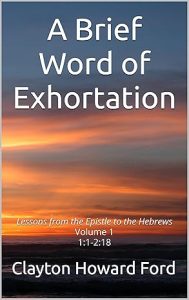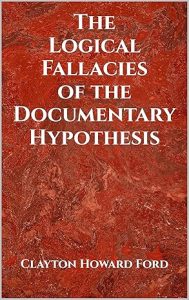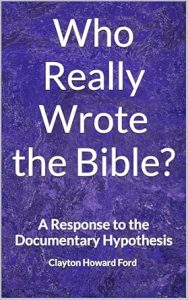The blogs in this category are the notes I used when teaching this series.
The Basic Doctrines of the Christian Faith
Lesson 1
In this series, we will learn about the doctrines that make Christianity, Christianity. If a person does not believe that any of these doctrines is true, that person is not a Christian.
We will learn what these doctrines are and how they are supported by the Bible. We Christians do not accept a doctrine as true unless it can be supported by the Bible, so the first doctrine we will discuss is what we believe about the Bible.
- The Bible
We believe the Bible is the inspired and inerrant Word of God.
a. We believe that the Bible is the inspired Word of God.
All Scripture is given by inspiration of God, and is profitable for doctrine, for reproof, for correction, for instruction in righteousness (2 Tim. 3:16-17).
“Is given by inspiration of God” is one Greek word, theopneustos, which literally means God-breathed.
It is true that men wrote the books of the Bible, but God inspired them, that is, he made sure they wrote what he wanted written.
We believe in the verbal plenary inspiration of the Bible, that is, we believe that every word of the Bible is inspired. If only part of the Bible is the inspired Word of God, then how are we to know which part is true and which is not? The Bible does not contain the Word of God. It is the Word of God.
The Bible is also profitable for doctrine.
The Bible is the standard by which we judge doctrines. If the Bible does not support a doctrine, we consider that doctrine to be false.
b. We believe that the Bible is the inerrant Word of God.
That is, we believe that the Bible contains no errors and that it is telling us the truth.
“Sanctify them by Your truth. Your word is truth” (John 17:17).
The law of the Lord is perfect, converting the soul;
The testimony of the Lord is sure, making wise the simple;
The statutes of the Lord are right, rejoicing the heart;
The commandment of the Lord is pure, enlightening the eyes;
The fear of the Lord is clean, enduring forever;
The judgments of the Lord are true and righteous altogether.
More to be desired are they than gold,
Yea, than much fine gold;
Sweeter also than honey and the honeycomb.
Moreover by them Your servant is warned,
And in keeping them there is great reward (Ps. 19:7-11)
Your righteousness is an everlasting righteousness,
And Your law is truth (Ps. 119:142).
You are near, O Lord,
And all Your commandments are truth (Ps. 119:151).
The entirety of Your word is truth,
And every one of Your righteous judgments endures forever (Ps. 119:160).
c. Objections
Some nonbelievers object to this belief about the Bible. They say, “You are merely arguing in a circle. You are using the Bible to prove the Bible.”
That would be true if the Bible were only one book written by one author.
The Bible is a collection of books written by 40 different human authors at different times and places.
The Scriptures we read above are simply the testimony of these authors concerning the other books of the Bible.
2 Tim. 3:16 is Paul’s testimony that the Old Testament was inspired. And Peter gives testimony that Paul’s writings are Scriptural (2 Pet. 3:15-16).
These men were simply confirming what God himself had already said about the Scriptures.
Since God inspired the writing of the Bible, he is the ultimate author of it. We know that the Bible is true because we know the author!
God knows everything (Heb. 4:13); therefore, he knows what is true and what is not.
God does not lie (Titus 1:2); therefore, if he says something is true, we can trust that it is true.
We trust that the Bible is telling us the truth because we trust that God is telling us the truth.
A second objection is, “You cannot view the Bible as authoritative because men chose which books should be in the Bible.”
From the outside, it certainly looks like men chose which books to put into the Bible. The New Testament did not achieve its final form until the fourth century. Several Church leaders offered different lists of which books were considered inspired. Athanasius, the bishop of Alexandria, was the first to list the 27 books we now have in the New Testament. He wrote that list in 367 AD.
However, these men were not deciding which books should be in the New Testament. God decided which books were inspired and which were not. The Church leaders were merely recognizing and confirming which books were inspired and therefore should be included in the New Testament.
So, how do we know which books should be in the Bible? We know because God said so. Men down through the ages have merely confirmed what God has already said.








